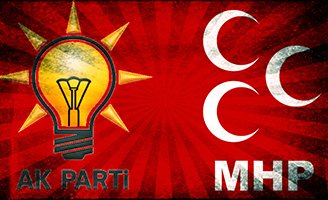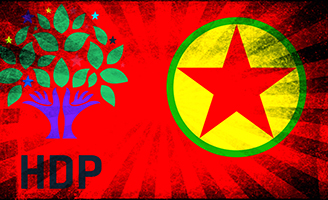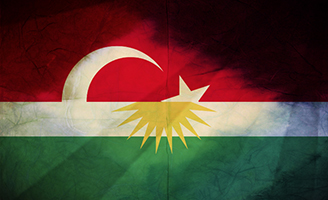Turkish Democracy Is Not Out of the Woods
By Halil Karaveli (vol. 8, no. 12 of the Turkey Analyst)
The immediate effects of Turkey’s June 7 election was that the ruling Justice and Development party (AKP) lost its majority and President Erdoğan was forced to put his plans for a presidential system on hold, at least for the moment. Yet the prospects for Turkish democracy are not necessarily any brighter today. The most likely outcome is a coalition between the AKP and the rightist Nationalist Action Party (MHP). That is the preferred outcome for “conservative” business interests, who challenge “secular” business interests and want to continue to use state power to get their hands on a bigger share of capital. Their interests ensure that the AKP will remain on its confrontational track; that is the principal dynamic behind Turkey’s drift toward authoritarian rule, and it is far from having been halted.

The Kurdish Surge in Turkey’s Election: A Boost in Backing for the PKK
By Aliza Marcus (vol. 8, no. 12 of the Turkey Analyst)
Kurdish voters abandoned the ruling AKP in Turkey's national elections, propelling the Kurdish HDP into parliament and giving Kurdish nationalist demands a new legitimacy. Earlier, critics could argue the PKK did not really represent the majority of Kurds in Turkey, but that argument is getting weaker by the day. The HDP's win can be ascribed, in large part, to a boost in backing for the PKK. The question is whether the parties and people who want more rights and freedoms will realize that Kurdish rights, autonomy and likely freedom for Abdullah Öcalan must be part of this to truly make Turkey into a liberal place.

What the Columnists Say
Ahmet İnsel in Cumhuriyet writes that the purpose of the attacks that were carried out against the premises of HDP in Adana and Mersin was to provoke HDP supporters and incite them take to the streets. Cengiz Çandar in Radikal writes that Turkey has lost its immunity to Salafism by acting as a sponsor of the Sunni radicals in Syria, in concert with Saudi Arabia. On the occasion of the death of Kenan Evren, the general who took power in the 1980 coup, Fatih Yaşlı in Yurt notes that Evren fathered today’s “New Turkey” by putting the current neoliberal-Islamic regime in place. Mümtazer Türköne in Zaman similarly observes that Evren’s regime, with its oppressive institutions, is still in place. He also notes that Evren was responsible not only for the coup but also for the wave of assassinations and massacres from 1978 onwards that preceded it and was used to legitimize it. İhsan Dağı on the Diken news site writes that if HDP crosses the threshold to parliament in the upcoming general election, it will restore the faith in competitive democracy, by demonstrating that change by normal ways is still possible in Turkey.

The Rising Bar: Prospects for the Kurdish Issue after the Turkish General Election
By Gareth Jenkins (vol. 8, no. 10 of the Turkey Analyst)
In the run-up to the Turkish general election of June 7, most attention has been focused on whether or not the pro-Kurdish Peoples’ Democracy Party (HDP) will cross the 10 per cent threshold necessary for representation in parliament and prevent the ruling Justice and Development Party (AKP) from securing a large enough majority to change the constitution and concentrate all political power in the hands of President Recep Tayyip Erdoğan. But the election is also likely to have a profound effect on the future of the Kurdish issue itself.

What the Columnists Say
Ahmet İnsel in Cumhuriyet writes that the purpose of the attacks that were carried out against the premises of HDP in Adana and Mersin was to provoke HDP supporters and incite them take to the streets. Cengiz Çandar in Radikal writes that Turkey has lost its immunity to Salafism by acting as a sponsor of the Sunni radicals in Syria, in concert with Saudi Arabia. On the occasion of the death of Kenan Evren, the general who took power in the 1980 coup, Fatih Yaşlı in Yurt notes that Evren fathered today’s “New Turkey” by putting the current neoliberal-Islamic regime in place. Mümtazer Türköne in Zaman similarly observes that Evren’s regime, with its oppressive institutions, is still in place. He also notes that Evren was responsible not only for the coup but also for the wave of assassinations and massacres from 1978 onwards that preceded it and was used to legitimize it. İhsan Dağı on the Diken news site writes that if HDP crosses the threshold to parliament in the upcoming general election, it will restore the faith in competitive democracy, by demonstrating that change by normal ways is still possible in Turkey.








